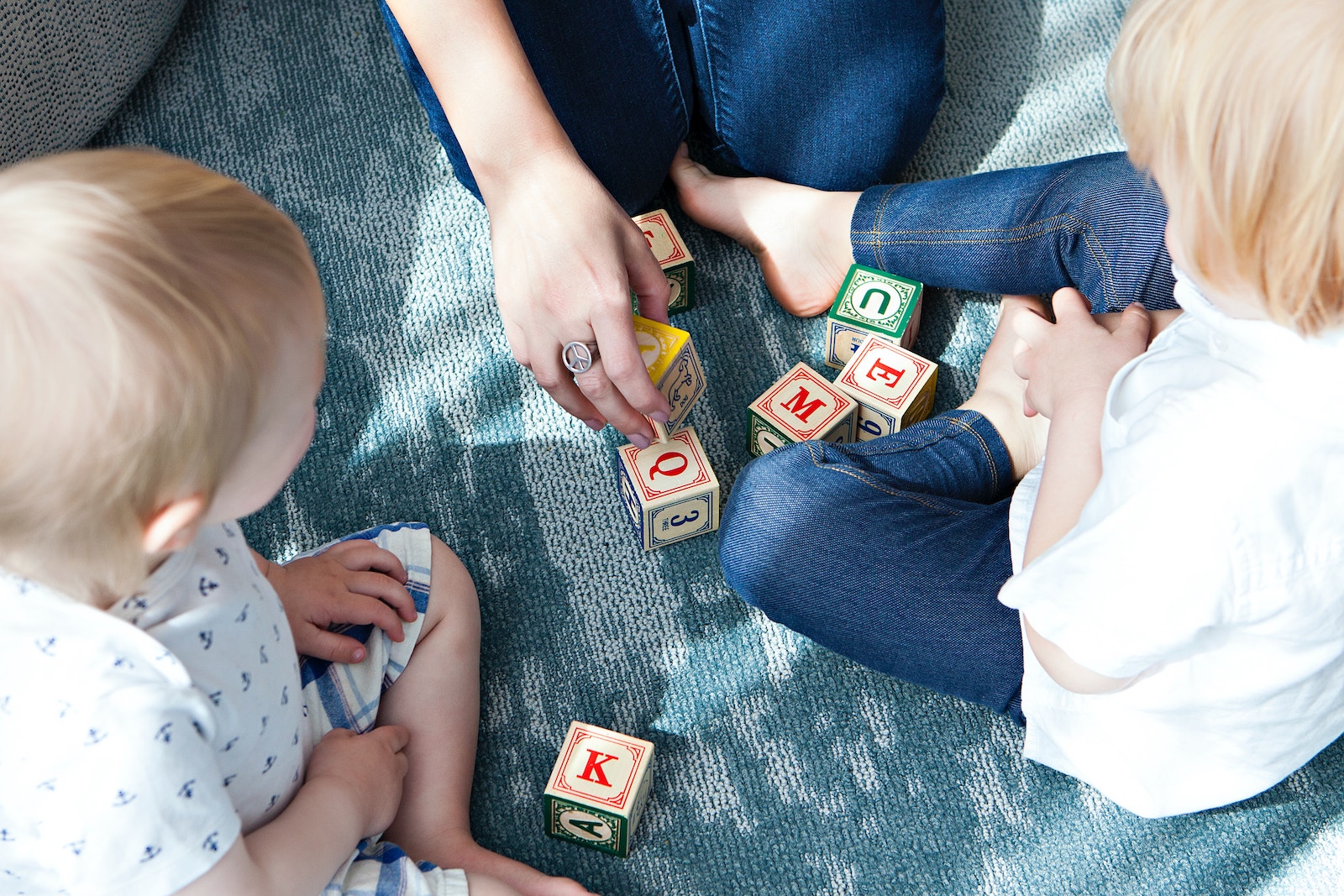
13 Feb How to increase your child’s IQ – is it possible?
One of the most important gifts we can give our children is a strong start for their developing minds. We know intelligence plays a key role in our kids’ future success. While there is some debate around genetic versus environmental factors, the latest research shows that parents have more influence over their child’s IQ than they may realise.
The good news is, there are fun and simple ways to nurture your child’s intellectual curiosity right from the start! By making small additions to your daily routines, you can actively support your little one’s cognitive growth and give them an advantage.
In this article, you’ll discover research-backed tips for boosting your child’s IQ through everyday interactions and activities. We’ll cover simple habits like reading together, chatting, playtime, healthy nutrition and more. These small investments of time and energy can pay huge dividends for your child’s brain development for years to come!
But first, the big question:
Can a child’s IQ be improved or is it genetic?
There’s a lot of scientific research devoted to understanding the relative contributions of genetics and environment to IQ. This is often referred to as the “nature versus nurture” debate, something we’ve looked at relation to entrepreneurs; whether they’re born or raised.
If you’re interested in the science; twin studies, adoption studies, and family studies have all been used to estimate how much of our IQ is inherited, or rather how much of the variation in IQ from person to person can be explained by their genetics. When we’re children, it’s estimated that our genes account for around 20-40% of variation in IQ levels, rising to between and 60-80% in adulthood. So interestingly, our genes are more responsible for our IQ as adults than as kids.
It’s important to note that the environment plays a significant role, especially in early childhood. Access to nutrition, education, and a stimulating home environment can seriously influence cognitive development. There’s also a concept known as “gene-environment interaction,” where the effect of genes on IQ can be dependent on the environment. For example, a child with the genetic potential to be highly intelligent might not reach it if they grow up in a deprived environment.
Overall, both genes and environment contribute to IQ, and their influences are complex and intertwined.
How to boost my child’s IQ
Check out these nine ways you can help develop your child’s IQ and intelligence now.
Nurture their mind through reading
As parents, one of the most powerful things we can do is read to our children every day starting at a young age. Studies show that being read to early on can actually boost IQ by 6-8 points later in childhood. By exposing kids to books, stories, and language through interactive reading sessions, we help build their vocabulary, comprehension, and critical thinking skills right from the start. So let’s pick up that bedtime storybook together tonight and make it a daily habit.
Limit screen time for healthier brain development
Research published in JAMA Pediatrics found that limiting children’s screen time to two hours per day led to higher cognitive test scores. While passive screen time can be tempting to busy parents, it is no substitute for active engagement. Let’s minimize aimless TV watching and instead choose educational, interactive activities together. From conversation to creative play, we can stimulate growing minds without screens. By being more selective with media exposure, we allow for healthier brain development.
Encourage curiosity through play and questions
Studies show toddlers who ask more questions and are encouraged to explore have higher IQs later on. As parents, we can nurture curiosity by allowing plenty of playtime, answering questions thoughtfully, and resisting the urge to ‘shush’. A home rich with conversation, exploration and engaged parents provides ideal conditions for intellectual growth. So the next time your child asks ‘Why is the sky blue?’ relish the moment. Their questioning spirit is a sign of budding intelligence.
Weave maths and logic into everyday life
Early exposure to math concepts like shapes, patterns, numbers and counting gives children an edge. Maths achievement in primary or grade school is directly linked to grasping these basics early on. We can seamlessly work numbers, sorting, matching and patterns into our daily routines. Point out the colours on cars, count stairs, identify shapes in nature. Making math concrete through real-world examples will boost cognitive skills. Our kids are like little sponges, eager to soak up knowledge about the world around them.
Foster hands-on learning
Provide blocks, puzzles, art supplies – any materials for hands-on, tactile learning. Physical engagement with their environment builds crucial neural connections in a child’s developing brain. With active exploration comes enhanced spatial relations, fine motor skills, creativity and problem-solving abilities. At the same time, minimising reliance on worksheets allows minds and bodies to grow together in a natural way. So let’s indulge those tactile instincts and foster their skills through interactive play.
Praise effort to build resilience
Research shows that praising children for effort rather than inherent intelligence promotes positive learning mindsets. When we focus praise on hard work and perseverance, we encourage motivation and resilience. Phrases like “You worked so hard on that!” recognise the process, not just the outcome. This instills a growth mindset to support lifelong learning. Let’s celebrate their effort today!
Model a love of learning as parents
A mother’s IQ and curiosity impacts her child’s cognitive development. As parents, we can model our own love of learning by sharing fascinating facts, reading together, and wondering aloud. Our engagement shows children that the world is full of interesting things to discover. Getting excited about new knowledge inspires them to engage their growing minds.
Prioritise nutrition and sleep
Key nutrients like DHA omega-3s and iron are tied to better cognition in kids. Sleep also directly impacts attention span, memory and learning. By ensuring healthy foods and consistent, early bedtimes, we provide the foundations for strong mental development. Let’s make brain-boosting nutrition and ample rest top priorities in our busy lives.
And perhaps the most surprising one of all:
The impact of your childhood best friend’s IQ
You may have heard the Jim Rohn quote, “we are the average of the five people we spend the most time with”, but you may not realise how early that becomes true. In the book Atomic Habits, author James Clear discusses the norms of cultures, and how the people around us shape who we become:
“…one study found that the higher your best friend’s IQ at age eleven or twelve, the higher your IQ would be at age fifteen, even after controlling for natural levels of intelligence. We soak up the qualities and practices of those around us.”
Who would have thought that your 12-year-old best friend’s IQ would affect your own IQ at age 15? It’s both terrifying and enlightening at the same time!
In summary
As parents, we may not be able to control our child’s natural abilities, but we can nurture their potential. With small, thoughtful steps we can profoundly shape their cognitive growth. Reading together, engaging in conversation, allowing hands-on play—these daily interactions stimulate developing minds. Establishing healthy routines with good nutrition and sleep gives them a strong foundation. Most importantly, we can encourage their innate curiosity.
A home rich with learning, exploration and love is the best environment for intelligence to bloom. By following these research-backed tips, we can plant the seeds today for a lifetime of discovery and success. Our children’s bright futures begin with the simple, joyful steps we take to engage their growing minds.





